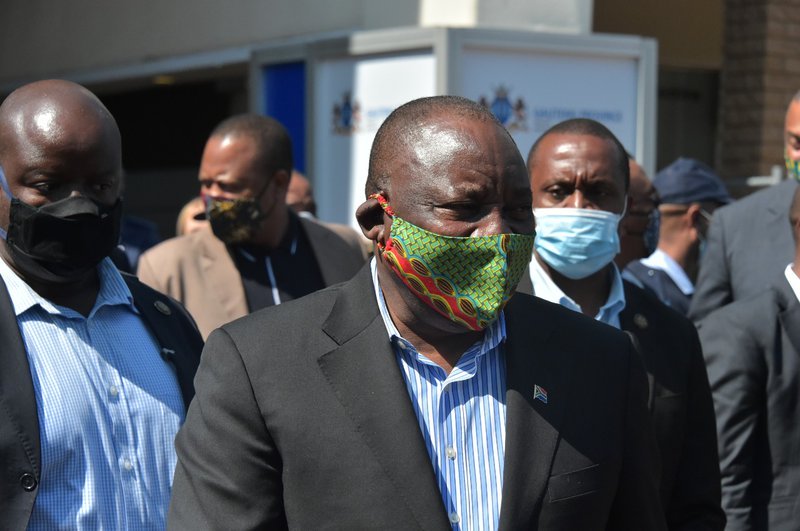President Cyril Ramaphosa informed South Africans that National Government will now begin focusing on ramping up its screening, testing and case management against the COVID-19 pandemic. There has been a sharp increase in the number of positive cases over the course of the past 72 hours.
As of last night [May 6], there are over 10 000 coronavirus cases in South Africa.
In his weekly column titled “From The Desk Of The President”, Ramapahosa said the health system must be prepped for an inevitable increase in cases.
“Our goal is to steadily reduce the alert level by keeping the rate of infection down and getting our health system ready for the inevitable increase in cases,” Ramaphosa said.
The President also advised South Africans to beware that COVID-19 may be around for up to a year.
“We must, therefore, be prepared to continue to live with the coronavirus among us for a year or even more. We must be prepared for a new reality in which the fight against COVID-19 becomes part of our daily existence,” Ramaphosa said. “We will introduce new measures to make contact tracing more effective. We will need to implement mass sanitisation of workplaces, public transport and other spaces.”
Even after lockdown – especially after lockdown – we will still need to observe social distancing, wear face masks, wash hands regularly, and avoid contact with other people. We will need to reorganise workplaces, schools, universities, colleges and other public places to limit transmission.”
On Sunday evening [May 10], Minister of Health Zweli Mkhize said that there are eight more coronavirus-related deaths in the country, bringing the total number of cases to 194.
While much about the virus is still unknown, experts agree the virus is a global threat and will remain so for some time. “We must therefore be prepared to continue to live with the coronavirus among us for a year or even more,” Ramaphosa said.
“At the same time, health experts around the globe are warning on a ‘second wave’ of infections as public life resumes. A number of countries including Germany, Iran and China have seen a rise in new infections since they relaxed certain restrictions,” he added. “We will be no different. We can and must expect infections to rise as more people return to work. We must accept the reality, prepare for it and adapt to it.”
The next phase of South Africa’s response is as much about continuity as it is about change or innovation, said Ramaphosa.
According to the president, the restrictions on the economic activity and daily life will gradually begin increasing. This being said, residents are still advised to have a strong sense of personal responsibility.
“The transition to the next phase of the coronavirus response, that of recovery, will be more difficult than the present one. The risk of infection outbreaks will increase. The demands on our clinics and hospitals and medical personnel will grow. That is why easing the lockdown restrictions must not result in careless behaviour by individuals or reckless practices by businesses keen to resume activity at the cost of human health,” the president added.
Picture: Twitter

